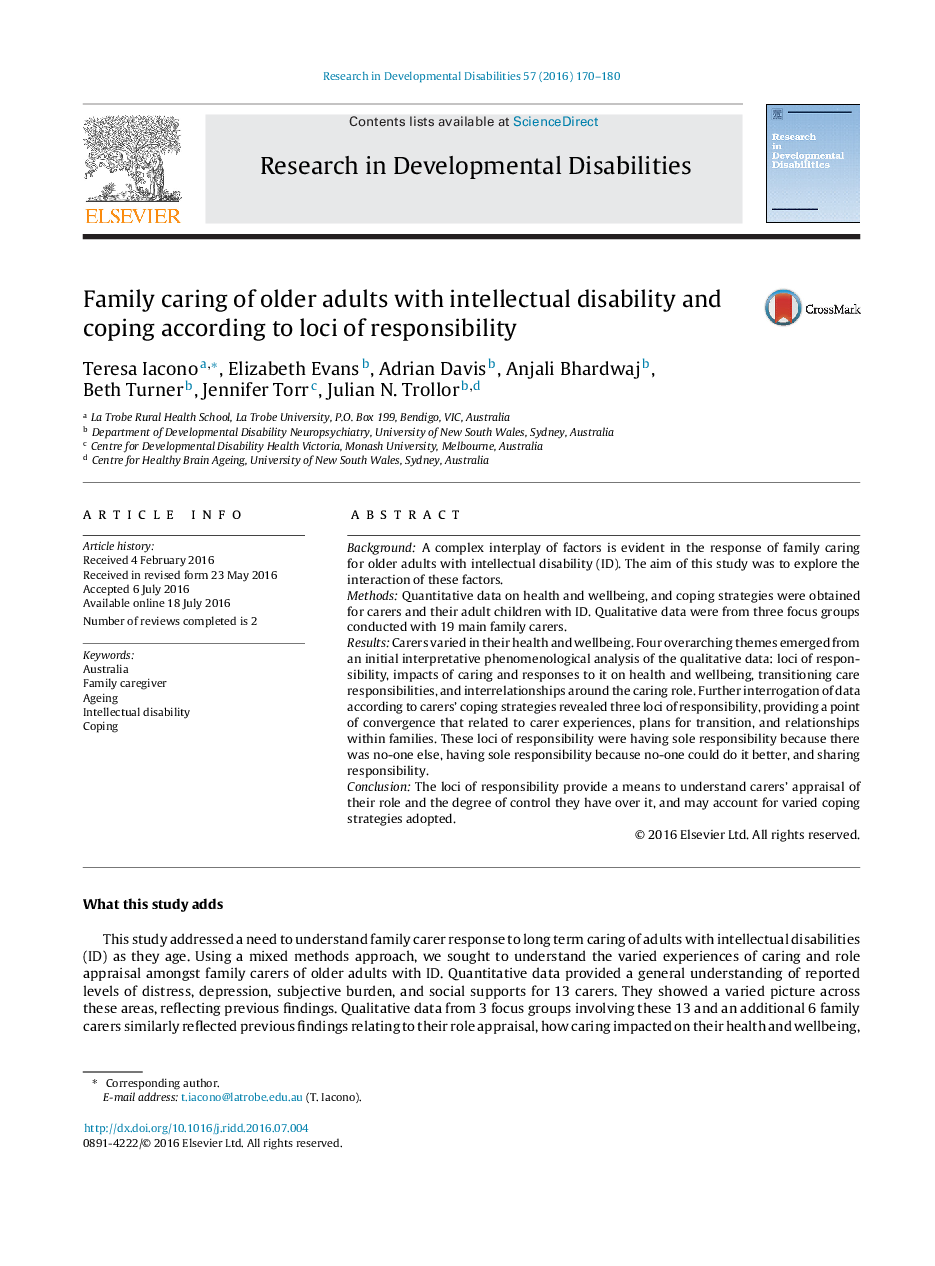| Article ID | Journal | Published Year | Pages | File Type |
|---|---|---|---|---|
| 371014 | Research in Developmental Disabilities | 2016 | 11 Pages |
•Family carers of older adults with ID vary in measures of health and wellbeing.•The loci of responsibility provides a basis for exploring the caring experience.•Appraisal of loci of responsibility may influence coping and responses to burden.
BackgroundA complex interplay of factors is evident in the response of family caring for older adults with intellectual disability (ID). The aim of this study was to explore the interaction of these factors.MethodsQuantitative data on health and wellbeing, and coping strategies were obtained for carers and their adult children with ID. Qualitative data were from three focus groups conducted with 19 main family carers.ResultsCarers varied in their health and wellbeing. Four overarching themes emerged from an initial interpretative phenomenological analysis of the qualitative data: loci of responsibility, impacts of caring and responses to it on health and wellbeing, transitioning care responsibilities, and interrelationships around the caring role. Further interrogation of data according to carers’ coping strategies revealed three loci of responsibility, providing a point of convergence that related to carer experiences, plans for transition, and relationships within families. These loci of responsibility were having sole responsibility because there was no-one else, having sole responsibility because no-one could do it better, and sharing responsibility.ConclusionThe loci of responsibility provide a means to understand carers’ appraisal of their role and the degree of control they have over it, and may account for varied coping strategies adopted.
